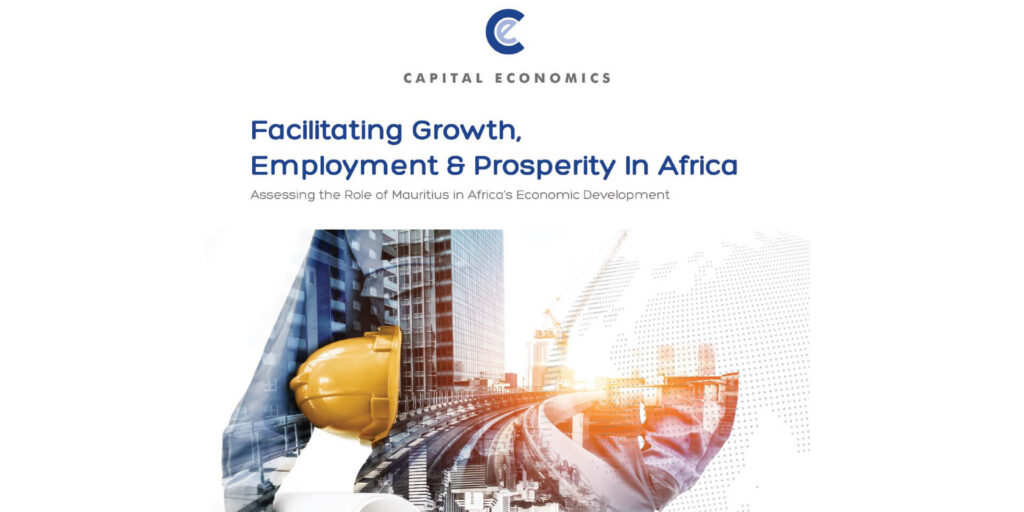Discover | Report | Capital Economics | Economic Development Board (EDB) Mauritius
Facilitating Growth, Employment & Prosperity In Africa
Capital Economics, a leading UK-based independant economic research company, has produced a report for the Economic Development Board (EDB) of Mauritius, titled “Facilitating Growth, Employment & Prosperity in Africa.”
Thereport assesses the ” Role of Mauritius in Africa’s Economic Development.” It highlights the contribution of Mauritius as an Interational Financial Centre (IFC) mediating and facilitating investment flows towards multiple African continent countries. The statistics and figuers analysed by the experts of Capital Economics concur to indicate the substantial impact iof the Foreign Direct Investment (FDI) flows in terms of job creation and tax income for the recipients.

Launching the report Dr. The Honourable Renganaden Padayachy, Minister of Finance, Economic Planning and Development, said: “This report highlights the key role of Mauritius in enabling and facilitating growth, employment and prosperity across the African content. It also reaffirms our future orientation as a financial centre of choice and repute. Our value as an investment, financial and business hub for the continent is substantial with 9% of overall FDI into Africa generated from Mauritius. We are, together, paving the way and contributing towards fulfilling our continent’s economic potential and helping it achieve the UN Sustainable Development Goals.”
The Honourable Mahen Kumar Seeruttun, Minister of Financial Services and Good Governance, said: “Mauritius is world-recognised as a hospitable, investor-friendly destination. A credible and secure financial centre of repute, synonymous to adherence with global standards on tax matters, regulatory practices and economic substance. The Report’s evidence-based, facts-driven analysis demonstrates that Mauritius has been a strong developmental ally for Africa, infusing powerful life force and helping millions out of poverty. I am profoundly optimistic that Mauritius will continue to play an important role in shaping the future and economic prosperity of Africa.”
With its strategic geographic position in the Indian ocean and convenient time zone four hours ahead of Greenwich Mean Time, Mauritius acts as a link between the East and West. Throughout its history, the republic has embraced its standing as a small open island economy and has used trade policy as a means both to protect domestic industry and promote export growth.
The Africa Competitiveness Report 2017 (World Economic Forum, Geneva), 2017
Key misconceptions are also addressed and debunked in the report. Notably, the concern whether IFCs like Mauritius may be “used to conceal the true owner of a particular asset from domestic or international regulatory authorities.” Capital Economics is adamant on this key issue: “The scope for hiding wealth from authorities through Mauritius is minimal. Mauritius, along with many other countries around the world, has aligned to common standards of financial transparency and the sharing of account holder’s information between tax authorities.”
Jurisdictions exchange information on an automatic basis through two key initiatives: the United States’ Foreign Account Tax Compliance Act (FATCA), which was first introduced in 2010 by the United States and came into force in Mauritius on 29 August 2014; and the Common Reporting Standard (CRS), closely build on FATCA, which was developed by the Organization for Economic Co-Operation and Development (OECD). (…) To enable the implementation of CRS, Mauritius signed the Convention on Mutual Administrative Assistance in Tax Matters (the Convention) in June 2015 which entered into force as from 1 December 2015.
“Facilitating Growth, Employment & Prosperity in Africa“, Capital Economics for EDB Mauritius
Read the report below:



Comments are closed.